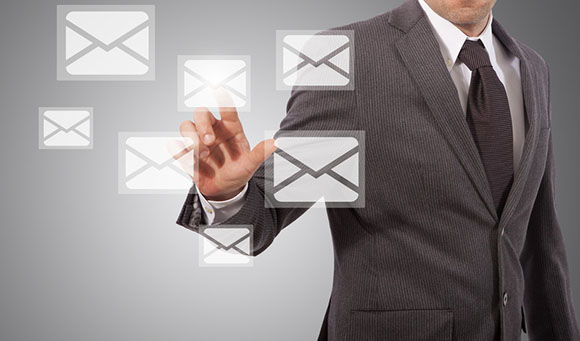Learn how to use email to improve your productivity and enhance your relationships

How to Use Email
Email and other electronic forms of messaging have simplified the sending of messages for everyone. However, in a basic communication model you will note that a message has to be sent and received for communication to be effective. Unfortunately due to the volume of email messages that we all receive, we can no long assume that sending an email is effectively communicating.
The volume of emails that we get are causing us to have less time to do our jobs. Let’s look at the common email time wasters and what you can do about them.
The biggest time wasters with email are:
- Reading the same email several times before taking action
- Having large email boxes and spending time looking for emails
- Having too many emails and procrastinating before actioning any emails
- Spending too long working out how to respond to someone else’s email
- Spending time reading emails that you do not need to read
How to use email to your advantage
- Set up email rules to shift emails that you do not need to read out of your inbox automatically. Save these to a folder appropriately named i.e. “project updates” or “reports”.
- If you open an email and it will take you less than 2 minutes to action, then action it straight away. Then remove the email from your inbox.
- Don’t hang on to an email for prosperity, if you don’t need it – delete it.
- Set up a folder called “received email” and shift everything you want to keep into it. They are easy to find again using “advanced search” in outlook.
- If you need to spend more than 5 minutes replying to an email, pick up the phone and call the sender.
- Never reply to all, set a good standard and reply to the sender unless you are providing information that others will need to do their job. If you are replying to all for political purposes then stop and reply to sender.
- Never assign a task in email, always have a conversation. Do not accept that if someone has sent you an email that they have communicated to you, email is a messaging not a communication tool.
- If you cannot action an email straight away save the email to your task list and set a reminder, then remove the email from your inbox. When you save the email to the task list over write the subject with the next action required.
- Turn off automatic email alerts and only check email between other tasks, rather than being interrupted by email.
How to use email for communication, Tips for sending email
- People always read emotion into email - normally negative emotion - so start every email in a positive tone “Hi, hope you’re having a great week/day” and end the email positively “thanks for your assistance”.
- Never use BCC. BCC is for people who lack integrity. With one exception you can BCC your industrial relations adviser in all emails between yourself and a staff member concerning the management of poor performance.
- Only CC people who need to know the content. You can assume most senior managers simply delete your CC emails without paying much attention to them.
- Keep email to a few lines, if you need more content maybe a phone call is better. When communicating a lot of information sending an email is efficient for you, however it is ineffective for the receiver. So instead invest your time in a phone call or a face to face chat.
- If you need to send out a lot of content, put the content in a PDF or word document and email the attachment out. I don’t know why but people are happier reading a large attachment than reading a large email.
- Never send someone an email while they are at their desk, try to call or drop by first. With the exception of appreciative praise (Although this is more effective if given verbally, but some people like the email too)
- If you have a large attachment, save it to a common drive and send a link in email to the attachment.
- If you are angry, don’t send an email it will only damage your reputation.
- Don’t assign work or tasks through email unless you have already discussed the task with the employee.
How to Use Email Summary
To be a leader you need to set an example for others to follow you can build and enhance relationships by choosing to communicate verbally either face to face or over the phone rather than through email. Sure email is an efficient low cost medium for sending a message but it is not an effective communication tool. Other methods of communication take more of your time, they also increase your influence and enhance the perception of your charisma.
Ultimately it is your choice
